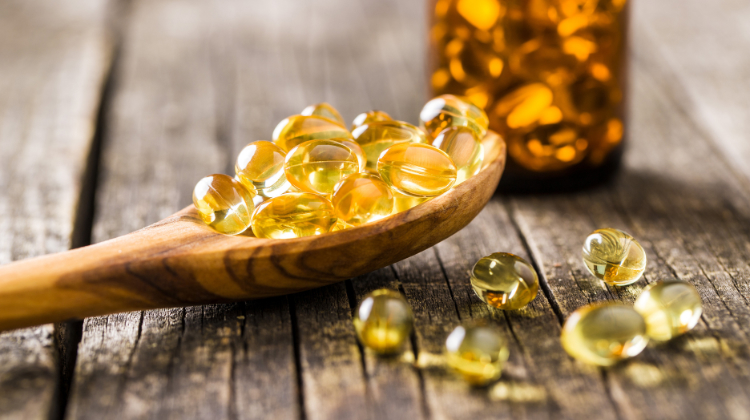 Expert's opinion
Expert's opinion
Expert's opinion
The article is a subjective view on this topic written by writers specializing in medical writing.
It may reflect on a personal journey surrounding struggles with an illness or medical condition, involve product comparisons, diet considerations, or other health-related opinions.
Although the view is entirely that of the writer, it is based on academic experiences and scientific research they have conducted; it is fact-checked by a team of degreed medical experts, and validated by sources attached to the article.
The numbers in parenthesis (1,2,3) will take you to clickable links to related scientific papers.
10 Natural Ways to Increase Your Appetite & Gain Weight 2024

You may come to a point in your life where you experience a decreased appetite that makes eating a struggle. Since being underweight can lead to health issues, it’s important to learn how to increase your appetite and reach a healthy food intake.
When you work on overcoming poor appetite, it needs to be through healthy eating and not just adding more food that could be high in unhealthy fats and sugar, hoping for the best.
Every person is different, and what works for your hunger levels may not work for others, so it may take some experimenting to find out what benefits you the most.
There are healthy ways to gain weight and boost appetite by eating nutritious foods. It can be a challenge to increase your appetite in order to consume enough calories.
If you’re wondering how to increase appetite in adults, view the following tips for natural ideas.
10 Ways to Increase Your Appetite Naturally
- Always eat breakfast
- Getting enough vitamins and minerals
- Exercise
- Frequent meals
- Hydrate after your meal, not before
- Increase mealtime fun
- Omega-3 and Omega-6
- Choose your favorites
- Cannabis
- Decrease your stress levels
10 Ways to Increase Your Appetite Naturally
Always Eat Breakfast

Regulating your food intake starts after you wake up. If you skip breakfast, it sends your body into fasting or a survival mode and encourages appetite loss.
When you wake up, you haven’t eaten for many hours, so your blood sugar levels are usually low and need to be restored to function well.
Eating breakfast soon after you wake up gives your body the ability to have a healthy appetite for the rest of the day. Enjoying breakfast helps regulate your appetite preventing you from overeating foods that can contribute unhealthy calories to your diet.
Breakfast also gives you:
- Increased energy
- Strength to exercise
- Stamina to be productive throughout the day[1]
- Ability to concentrate
- Better memory
- Lower levels of “bad” LDL cholesterol[2]
- Essential nutrients that will help increase your appetite
- Protection against diabetes[3]
- Essential calories to maintain a healthy weight
- Reduced risk of heart disease[4]
Your breakfast doesn’t have to be a huge meal. You can choose a bowl of heart-healthy oatmeal, a smoothie made with fresh fruit, or granola bars made from whole grains to fuel your body and avoid a low appetite for the remainder of the day.
If you find yourself in a rush in the morning and skipping breakfast, taking the time to make a breakfast plan for each week can really pay off. Preparing food ahead of time and choosing enjoyable foods for your meals will help encourage you regularly eat meals.
Getting Enough Vitamins and Minerals

Making sure you have a balanced diet is the main concern to consider if you are experiencing a lack of appetite. If you are deficient in certain vitamins, you can lack the desire to eat.
When determining how to increase appetite in the elderly, adults, or children, it is crucial to ensure they get all the vitamins and minerals they need.
Studies show that you can experience a lack of appetite if you are deficient in any of these vitamins and minerals:
- B vitamins[5]
- Vitamin C[6]
- Iron[7]
- Zinc[8]
- Magnesium[9]
Your body needs these nutrients to maintain energy, make digestive enzymes and keep a healthy weight. You can naturally add these vitamins and minerals into your meals with certain foods like
- Pumpkin seeds
- Sesame seeds
- Citrus fruits
- Leafy green vegetables
- Beans like chickpeas, lentils, and black beans
- Nuts
- Potatoes
Being low in these essentials can also cause
- Fatigue
- Anemia
- Constipation
- Weakness
- Muscle pain
- Weight loss
Exercise

Including exercise or physical activity in your daily routine is essential for promoting muscle growth and can be an appetite stimulant[10].
Muscle-building exercises can help you gain strength and muscle mass that equal healthy weight gain. It may take several days of routinely incorporating exercise to increase appetite, but if you stick to it, you will see results.
Brisk walking, cycling, or weight-lifting before meals can improve your appetite and digestion. Light exercise can be great for those who want to succeed in increasing appetite but not lose weight due to calories burned.
Frequent Meals

When you’re struggling with a desire to eat, it may be hard to sit down and eat a big meal three times a day. Over-stuffing and over-filling do not act as appetite stimulants.
Eating small portions 5-8 times a day instead of several big meals can improve your calorie intake and maintain healthy blood sugar levels. It can also reduce the likelihood of you choosing the wrong foods from being too hungry.
Preparing healthy snacks and placing food throughout your living space can stimulate your appetite and encourage your body to stay energized. It also promotes a good metabolism that will keep your body using all the nutrients you ingest. Planning ahead and making these small meals easy to grab throughout the day will help keep your appetite engaged.
Hydrate After Your Meal, Not Before

If you’re struggling with a loss of appetite, it’s important to know that drinking water closely before or with meals can reduce your food intake[11]. When you drink a lot of liquids before a meal, it prevents overeating but also makes your stomach think that it’s full and decreases a person’s desire to eat their meals.
Drinking water between meals allows your body to consume more calories and helps combat poor appetite.
Make sure you consume enough water, however, since dehydration can cause a loss of appetite[12]. On average, you need to drink half of your body weight in water every day to stay hydrated and keep your organs healthy.
Increase Mealtime Fun

Sometimes eating can feel like a chore. It can become typical to eat alone when dealing with things like isolation, responsibilities, and rushing around. These obstacles can make consuming regular meals unenjoyable.
One way eating can become a pleasure again is to intentionally make it a fun time. Joining family or friends and making mealtime a social event increases appetite. It gives you something to look forward to. Even going alone to your favorite restaurant can help avoid loss of appetite.
Try to take your time while eating. People are so busy they are not chewing their food enough to break it down, which can cause bloating, gas, reflux, and belching[13]. That can make people want to avoid eating even more.
Playing music or reading a good article while you eat can encourage you to relax and enjoy your time. Stressful environments can cause a loss of appetite, so choose an uplifting atmosphere when you are able to.
Omega-3 and Omega-6

Omega-3 and omega-6 are fatty acids that your body pulls from nutritious foods to maintain a healthy body. They can act as an appetite stimulant and add beneficial extra calories.
Omega-6 increases the activity in the endocannabinoid system and can lead to increased appetite and weight gain. Some studies show that omega-3 consumption can result in improved appetite[14].
There are convenient natural supplements to help you get enough of these omega-fatty acids. These include fish oil, cod liver oil, and algae oil that you can add to your meal intake.
Medium-chain triglycerides, or MCTs, are a type of oily fat. It’s made from palm kernel oil and coconut oil. MCTs are an excellent source of omegas and can help increase appetite by promoting the “hunger” hormone ghrelin to be released.
These healthy fats are appetite stimulants and can easily be added to your coffee, smoothie, or salad dressings if you would rather avoid the taste.
You can also add oils to protein drinks, promoting healthy weight gain and providing a pleasant taste.
Other sources of these essential fatty acids to improve appetite include:
- Salmon, tuna, oysters, and mackerel
- Hemp seeds, flax seeds, and chia seeds
- Walnuts, almonds, cashews, and nut butter
- Kale, broccoli, spinach, and Brussels sprouts
Choose Your Favorites

When you’re planning what to eat, selecting at least one of your favorite foods can help ensure some amount of food intake during your meal. Adding spices and seasonings to dishes may give them the aroma it needs to boost your appetite.
Trying out different recipes can get your creative juices flowing and increase your kitchen skills while giving you something to look forward to. Just have a backup plan in case things go sour!
You can help make your food look appetizing with varying colors that appeal to you. Dinnerware that you enjoy looking at may help you consume more calories compared to unappealing dishes and cutlery.
If you select colors you enjoy looking at, foods with aromas you like smelling, and textures you enjoy, these things can serve as natural appetite stimulants.
Cannabis

Marijuana, also known as the Cannabis sativa plant, is famous for treating many health issues and has been shown to reduce nausea[15] that can cause weight loss.
If marijuana is legal where you live, and you’re wondering how to gain appetite fast, studies show[16] it can stimulate appetite and make eating your food more pleasurable.
Decrease Your Stress Levels

Being under stress doesn’t just affect you mentally. It can affect your entire body and can cause a low appetite. When stress has the state of your emotions going up and down, causing anxiety or depression, it can throw your digestive tract way off.
Stress can cause nausea, indigestion, stomach pain, difficulty swallowing, and dry mouth. These can all decrease your appetite to the point of non-existence until you get your stress levels[17] under control.
Here are some ways to decrease your stress level and take back your mental and digestive health:
- Get enough rest and sleep. This is when your body heals, detoxes, and recovers from the long day. Lack of sleep[18] can cause high-stress levels, so aim for 7-9 hrs of sleep.
- Exercise. Physical activity lowers cortisol and adrenaline levels[19], the hormones that regulate your body’s stress response.
- Learn to find the silver lining. Limit stressful thoughts and allow your focus to be on the good things in life, not what you can’t control.
- Deep breathing relaxes your mind and body while also lowering cortisol levels.
- Self-care. This can look like counseling, massage therapy, or taking time for a hobby you really enjoy. Reading, nature outings, or woodworking are all healthy hobbies that can lower stress levels.
The Bottom Line
If you’re struggling with a loss of appetite, you may start losing weight. If you want to experience an increase in your appetite and calorie intake, these tips should give you a good start on your climb to a healthy weight.
Listening to your body and keeping track of what stimulates your appetite versus what stifles it can help you be proactive in your future planning.
Always consult your healthcare professional if you’re concerned you’re not eating enough food since this can be caused by depression or certain medications. Medical conditions and poor mental health can occur if you lose weight to an unhealthy level.
+ 19 sources
Health Canal avoids using tertiary references. We have strict sourcing guidelines and rely on peer-reviewed studies, academic researches from medical associations and institutions. To ensure the accuracy of articles in Health Canal, you can read more about the editorial process here
- Clayton, D.J. and James, L.J. (2015). The effect of breakfast on appetite regulation, energy balance and exercise performance. Proceedings of the Nutrition Society, [online] 75(3), pp.319–327. doi:10.1017/s0029665115004243.
- Geliebter, A., Astbury, N.M., Aviram-Friedman, R., Yahav, E. and Hashim, S. (2014). Skipping breakfast leads to weight loss but also elevated cholesterol compared with consuming daily breakfasts of oat porridge or frosted cornflakes in overweight individuals: a randomised controlled trial. Journal of Nutritional Science, [online] 3. doi:10.1017/jns.2014.51.
- missone (2019). Breakfast-Skipping Linked to Type 2 Diabetes. [online] Clevelandclinic.org. Available at: https://newsroom.clevelandclinic.org/2019/04/02/breakfast-skipping-linked-to-type-2-diabetes/amp/
- Ofori-Asenso, R., Owen, A.J. and Liew, D. (2019). Skipping Breakfast and the Risk of Cardiovascular Disease and Death: A Systematic Review of Prospective Cohort Studies in Primary Prevention Settings. Journal of Cardiovascular Development and Disease, [online] 6(3), p.30. doi:10.3390/jcdd6030030.
- Ohta, R., Ryu, Y. and Hattori, S. (2020). Association between transient appetite loss and vitamin B1 deficiency in elderly patients with suspected deficiency. Journal of General and Family Medicine, [online] 22(3), pp.128–133. doi:10.1002/jgf2.404.
- CW, W. (2022). Appetite for vitamin C: its relationship to cellular energy potential. International journal for vitamin and nutrition research. Supplement = Internationale Zeitschrift fur Vitamin- und Ernahrungsforschung. Supplement, [online] 23. Available at: https://pubmed.ncbi.nlm.nih.gov/6811479/
- Ghrayeb, H., Elias, M., Nashashibi, J., Youssef, A., Manal, M., Mahagna, L., Refaat, M., Schwartz, N. and Elias, A. (2020). Appetite and ghrelin levels in iron deficiency anemia and the effect of parenteral iron therapy: A longitudinal study. PLOS ONE, [online] 15(6), p.e0234209. doi:10.1371/journal.pone.0234209.
- Suzuki, H., Asakawa, A., B. Li, J., Tsai, M., Amitani, H., Ohinata, K., Komai, M. and Inui, A. (2011). Zinc as an Appetite Stimulator – The Possible Role of Zinc in the Progression of Diseases Such as Cachexia and Sarcopenia. Recent Patents on Food, Nutrition & Agriculturee, [online] 3(3), pp.226–231. doi:10.2174/2212798411103030226.
- National Institutes of Health (2016). Office of Dietary Supplements – Magnesium. [online] Nih.gov. Available at: https://ods.od.nih.gov/factsheets/Magnesium-HealthProfessional/.
- Blundell, J.E., Caudwell, P., Gibbons, C., Hopkins, M., Naslund, E., King, N. and Finlayson, G. (2012). Role of resting metabolic rate and energy expenditure in hunger and appetite control: a new formulation. Disease Models & Mechanisms, [online] 5(5), pp.608–613. doi:10.1242/dmm.009837.
- Jeong, J.N. (2018). Effect of Pre-meal Water Consumption on Energy Intake and Satiety in Non-obese Young Adults. Clinical Nutrition Research, [online] 7(4), p.291. doi:10.7762/cnr.2018.7.4.291.
- Cleveland Clinic. (2021). Dehydration: Causes & Symptoms. [online] Available at: https://my.clevelandclinic.org/health/treatments/9013-dehydration
- Medicine, N. (n.d.). Quick Dose: Is Eating Too Fast Unhealthy? [online] Northwestern Medicine. Available at: https://www.nm.org/healthbeat/healthy-tips/nutrition/quick-dose-is-eating-too-fast-unhealthy.
- NA; (2012). Fish oil supplementation is beneficial on caloric intake, appetite and mid upper arm muscle circumference in children with leukaemia. Asia Pacific journal of clinical nutrition, [online] 21(4). Available at: https://pubmed.ncbi.nlm.nih.gov/23017308/
- Mayo Clinic. (2020). Marijuana. [online] Available at: https://www.mayoclinic.org/drugs-supplements-marijuana/art-20364974
- Kirkham, T.C. (2009). Cannabinoids and appetite: Food craving and food pleasure. International Review of Psychiatry, [online] 21(2), pp.163–171. doi:10.1080/09540260902782810.
- Marksberry, K. (2020). Stress Effects – The American Institute of Stress. [online] The American Institute of Stress. Available at: https://www.stress.org/stress-effects?gclid=Cj0KCQjw_7KXBhCoARIsAPdPTfhO35mfHXbVCdIxU2VVrZ_U_U0CO6MOUk_byk4DzyehlCcM02tFkpUaApOBEALw_wcB
- Sleep Foundation. (2020). Stress and Insomnia | Sleep Foundation. [online] Available at: https://www.sleepfoundation.org/insomnia/stress-and-insomnia
- Harvard Health. (2011). Exercising to Relax – Harvard Health Publishing – Harvard Health. [online] Available at: https://www.health.harvard.edu/staying-healthy/exercising-to-relax



